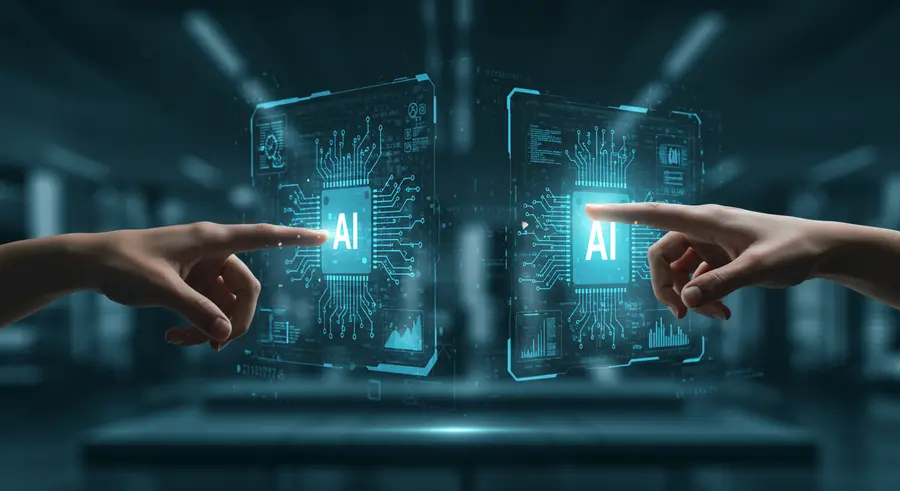Appearance

Welcome, fellow developers and tech enthusiasts! 👋 Today, we're diving deep into a topic that's revolutionizing the way we build software: Artificial Intelligence in Software Development. AI isn't just a buzzword; it's a powerful ally that's transforming every stage of the Software Development Life Cycle (SDLC), from planning and coding to testing and deployment.
Why AI in Software Development? 🚀
The integration of AI into software development brings a plethora of benefits, addressing common pain points and opening up new possibilities:
- Accelerated Development Cycles: AI tools can automate repetitive tasks, generate code snippets, and even suggest optimal architectures, drastically reducing development time.
- Enhanced Code Quality: AI-powered linters and code review tools can identify bugs, security vulnerabilities, and adherence to coding standards much faster and more consistently than manual reviews.
- Improved Efficiency: By automating routine tasks, developers can focus on more complex, creative, and strategic aspects of their work.
- Smarter Decision-Making: AI can analyze vast amounts of data to provide insights into project progress, potential risks, and resource allocation.
Key Areas Where AI is Making an Impact:
1. Intelligent Code Generation & Assistance 💡
Tools like GitHub Copilot and others are prime examples of AI assisting developers in writing code. They leverage machine learning models trained on vast code repositories to:
- Suggest code completions in real-time.
- Generate entire functions or blocks of code based on comments or function signatures.
- Translate code between different programming languages.
This not only speeds up coding but also helps developers discover new patterns and best practices.
2. Automated Testing & Quality Assurance 🧪
AI is transforming software testing by enabling:
- Test Case Generation: AI can analyze application behavior and existing code to automatically generate comprehensive test cases.
- Defect Prediction: Machine learning models can predict potential areas of code prone to defects based on historical data, allowing for proactive testing.
- Automated UI Testing: AI-powered tools can intelligently interact with user interfaces, adapting to changes and identifying visual regressions.
3. Smart Code Review & Refactoring ✨
AI-driven code analysis tools go beyond simple syntax checking. They can:
- Identify complex code smells and anti-patterns.
- Suggest refactoring opportunities to improve code readability, maintainability, and performance.
- Enforce coding standards and best practices consistently across large teams.
4. Project Management & Predictive Analytics 📊
AI can provide valuable insights for project managers by:
- Predicting project timelines and potential delays based on historical data and current progress.
- Optimizing resource allocation and identifying bottlenecks.
- Analyzing team performance and suggesting areas for improvement.
5. Enhanced Security 🔒
AI plays a crucial role in bolstering software security:
- Vulnerability Detection: AI can rapidly scan codebases for known vulnerabilities and common security flaws.
- Threat Prediction: By analyzing patterns in past attacks and system logs, AI can predict and prevent future security breaches.
- Automated Security Audits: AI tools can perform continuous security checks throughout the development pipeline.
Best Practices for Integrating AI into Your Workflow:
While AI offers immense potential, successful integration requires a strategic approach:
- Start Small and Iterate: Begin with specific, well-defined use cases where AI can provide immediate value.
- Focus on Augmentation, Not Replacement: AI should empower developers, not replace them. Human oversight and critical thinking remain paramount.
- Ensure Data Quality: The effectiveness of AI models heavily depends on the quality and relevance of the data they are trained on.
- Embrace Continuous Learning: The AI landscape is evolving rapidly. Stay updated with new tools, techniques, and best practices.
- Foster Collaboration: Encourage developers to share their experiences and insights on using AI tools.
AI and Version Control: A Symbiotic Relationship
As AI assists in generating and refining code, the role of robust version control systems like Git becomes even more critical. AI-generated code, just like human-written code, needs to be meticulously tracked, reviewed, and managed. This ensures:
- Traceability: Knowing who (or what AI tool) made which changes and why.
- Collaboration: Seamlessly integrating AI-generated code with contributions from multiple developers.
- Rollbacks: The ability to revert to previous versions if AI introduces unintended issues.
To truly master the collaboration and management of your codebase, whether AI-augmented or purely human-crafted, understanding Git is fundamental. For a deeper dive into the essentials of managing your code efficiently, explore our article on Understanding Git and Version Control.
The Future is Now! 🌐
The synergy between AI and software development is only just beginning. As AI models become more sophisticated and specialized, we can expect even more transformative impacts on how we design, build, and maintain software. Embracing these advancements will be key for developers and organizations looking to stay at the forefront of innovation.
What are your thoughts on AI in software development? Share your experiences and predictions in the comments below! 👇